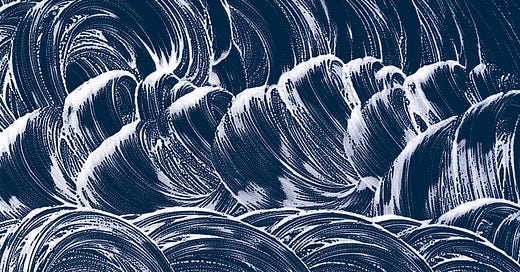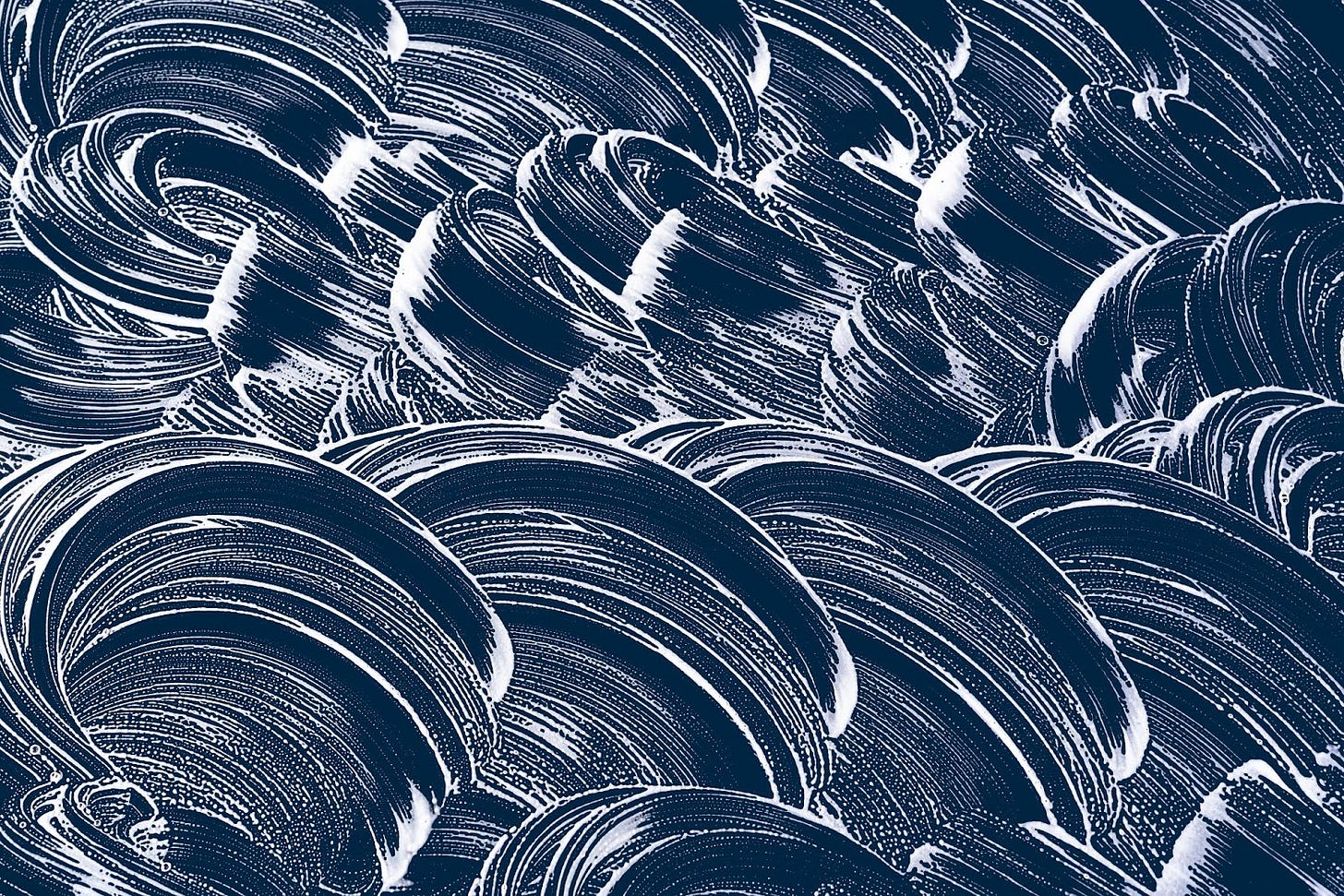Instead of sitting down to write this newsletter, I cleaned the house. I made my bed, started a load of laundry, and swept leaves off our patio. I put away the picture books my daughter and I read the previous night, organized our pantry, and dragged a stepstool outside so I could wipe down our windows.
I did all of these things because I had the house to myself. Billy took our kiddo on a morning adventure to give me some time alone to work on this week’s post. Instead of taking that time to write, I cleaned.
Our house isn’t particularly messy right now. Many of the things I opted to do — like tidying the pantry and washing our windows — were completely unnecessary. But they accomplished what I needed them to: those little acts of tidiness helped me feel more in control.
There’s a lot to feel helpless about lately. I can barely look at the news these days — the updates from Gaza and Israel are too horrendous; the chaos among politicians in Washington D.C., too depressing; the neverending drip-drip-drip of climate disasters, too ominous. I don’t know what to do about it all. I don’t know how to process any of it. I don’t know how to consume such heavy information and approach my day with lightness.
So I don’t. I allow myself to scan the headlines each day, but not dive in deeper. I stay off of social media and away from complicated debates. And I clean.
Cleaning as a coping mechanism isn’t new, nor is it unique. When my husband Jamie died in 2017, cleaning was the one thing I could do. Our — oh, wait, my — house was spotless in those hazy days of new widowhood. I’d regularly find myself feeling lost, not knowing what to do with my many big feelings and fears. Cleaning felt like a small way to exert control over everything that had suddenly fallen apart.
In a post that now seems ominous, I began 2020 writing about the power of cleaning: “Right now, with my extra-clean home, I feel energized and ready to take on whatever 2020 throws at me,” I chirpily mused. (Y’all, no amount of cleaning could have prepared me for what was ahead.)
Just a few days ago, The New York Times featured an op-ed from a screenwriter who combats his eco-anxiety by picking up trash. That’s something I’ve also written about. When life feels messy — and, lord, do things feel messy these days — responding by cleaning just makes sense.
We all have ways to cope with the uncertainty and unfairness of the world. One of my go-to responses just happens to be cleaning. Depending on the stressor and the day, I may also cope by eating lots of sweets, spending too much time on my phone, picking dumb fights, worrying about things I can’t control, or opting to do nothing at all.
To be clear, cleaning is not the morally superior choice. It’s simply a choice. And it’s often the one I make to help me get through when life feels especially messy.
As K.C. Davis writes in How to Keep House While Drowning, “You are not a failure because you can’t keep up with laundry. Laundry is morally neutral.”
A couple weeks ago, I had a Zoom call with a colleague who felt like she wasn’t good enough. She found endless reasons to feel bad about her current work performance — according to her, she wasn’t turning in projects quickly enough, wasn’t contributing to meetings enough, and wasn't coming up with ideas that were innovative enough. Mind you, no one was saying these things to her. No one but her.
She reminded me of a younger version of myself, the try-hard Katie who could never try as hard as she hoped to. I remembered how discouraging it felt to never be enough, no matter what area of life I was currently fixated upon.
Toward the end of our call, she admitted how hard it’s been to focus — with everything happening in the Middle East and elsewhere. “I don’t know how to turn off the news and turn on work mode,” she said.
I told her what I wish I could have told myself years ago. Something I want to tell you, too:
The fact that you’re hurting and having trouble focusing after consuming such horrible news doesn’t mean there’s anything wrong with you. It means you’re human. It means you care. It is a sign of how empathetic and compassionate you are, nothing more.
We can’t take away the suffering of the world. But we can choose whether or not to add on additional pain by beating ourselves up for the various ways we react to that suffering. We can accept our responses for what they are — proof that we are caring humans — and give ourselves the same love and compassion we wish we could give other folks that are hurting.
I then issued a gentle challenge to my colleague. I asked her to let go of expectations for the following week and to place her efforts toward practicing self-compassion instead. And you know what? She had a much easier time showing up for work and getting things done.
Sometimes I wonder what’s the point of a newsletter like My Sweet Dumb Brain. Didn’t I write a self-compassion essay like this not too long ago? Aren’t there countless other writers out there doing this type of work better and more consistently than I am? Am I really — really?! — writing about cleaning at a time when a horrific number of people are dying, injured, and displaced from their homes?
It feels small and a little silly. Kind of like cleaning my house when there are more pressing tasks to attend to. But it helps. Or, at least, I hope it does. It’s a brief respite from the chaos. A reminder that you are human. That you care. That you are empathetic and compassionate. And that one of the best things you can do is love yourself — so that you have the capacity to love and care for others.
I could beat myself up for spending more time cleaning than I did writing today’s newsletter. I could look at my Substack dashboard and panic over how much my paid subscriber count has dropped in recent months. I could start my week feeling like I’ve failed before it’s even begun.
But I won’t. And I hope you won’t beat yourself up for whatever it is that’s nagging at you, either. I hope you’ll choose compassion. I hope you’ll extend that compassion to someone else this week. We’re all hurting, and we’re all responding to that hurt in a myriad of weird and wonderful ways. If we could love ourselves and each other through it, the world might appear — just for a brief, wondrous second — a tiny bit less messy.
xoxo KHG
p.s. If you do have the capacity to read and learn more about the crisis unfolding in Gaza, the latest issue of
is a great place to start. Fiza shares the same heartache I described, and she’s also staying educated, amplifying thoughtful takes, and having tough conversations with friends.







My floors are super clean right now for exactly this same reason. I love that you’ve named it and I always feel so seen and supported with your words! From one sweet dumb brain to another! 💙
I am a stress and anxiety cleaner as well. Much to relate to here and thank you!